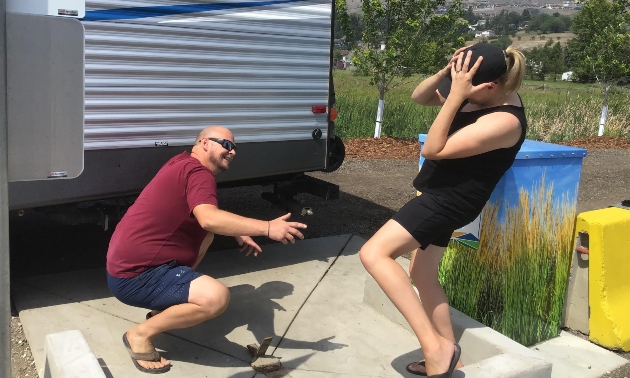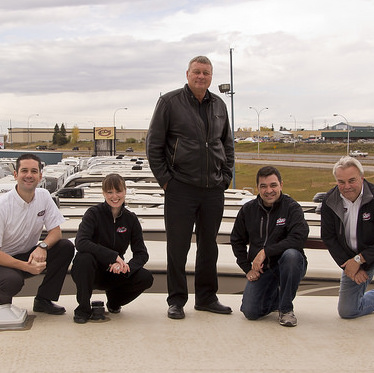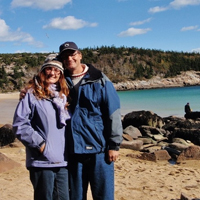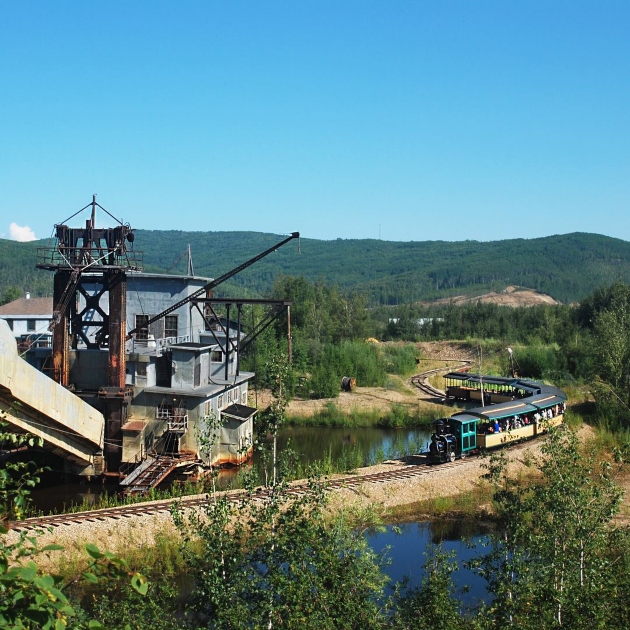Unraveling the RVer’s code: Do you speak the language of the open road?
If you want to be part of the RV community, it helps to learn the lingo!

Do words like black water, surge protectors, and holding tanks mean anything to you? Hearing about black water, grey water, surge guards, wheel chocks, drinking water hoses, and holding tanks are like hearing a foreign language to a lot of people. If you’re new to RVing or have plans to RV in the future these are words you need to become familiar with.
If you sit around a bonfire with a group of RVers invariably the conversation will include at least one of those items. You might hear things like “I dumped the black water all over my feet” to “My holding tank is plugged” and believe me once you start RVing these will probably become part of your vocabulary at some time too. It’s inevitable.

So, what are these strange things these people talk about so often? How important are they and if you’re an RVer do you need to know about them?
Yes, they’re important and you’ll need to know what they are, how to take care of them and how to fix them if a problem arises. Don’t panic, it’s not that difficult.
The following list are names you need to be familiar with and items that should be on your shopping list if they aren’t in your RV when you take possession.

Definition of RV-related words
Black water: In very simple terms, the black water is the wastewater from your toilet. It drains into a black water holding tank that’s drained as needed through a sewer hose into a sewer outlet. At times there can be problems with the blackwater holding tank plugging up and not draining properly. This can be caused by several things that includes not having enough liquid in the tank or improper toilet paper usage, just to name a few.
Grey water: This is the wastewater that drains from the shower and sinks into a grey water holding tank that’s emptied the same way as the black water tank. There shouldn’t be any solids in these tanks so there normally won’t be any blockages but still require regular maintenance.
Holding Tanks: most RVs have two holding tanks at a minimum. One is for the black and the other for the grey water and a third for the fresh water. It’s important to know how to care for these tanks to prevent problems such as blockages and buildup of solids. Holding tanks are drained by attaching a sewer hose to the RV and then connecting it to a proper RV drain either in an RV Park or a proper RV dump station. Usually, the black water tank gets drained first and then the grey water, which helps clean out the hose.
Fresh water tank: This is the water that comes out of your taps and is filled using potable water from home or a safe potable water site using a clean drinking water hose.

Shopping list of necessary accessories for your RV
Sewer hose: There’s no avoiding having to drain your grey and black water tanks so it’s important to have the right equipment. RV sewer hoses are made of super heavy-duty vinyl and compress for easy storage and can be purchased at any RV dealership. Each end of the sewer hose should have a connection piece that ensures nothing leaks while it’s being drained. Having a clear adapter at the drain end of the hose allows you to see what’s inside your RV drainpipe, preventing any surprises.
Water hose: Most RVers carry two water hoses. One is for filling the drinking water holding tank and the other is used for cleaning or filling your black or grey water tanks. By having separate hoses, it ensures your main water hose is clean and not have bacteria on the ends.
Surge guard: This is probably one of the most important items needed to protect your RV. By plugging in the surge guard first into the electrical outlet to test the power, it will notify you if there are any electrical issues.
Once you know there aren’t any concerns you can then plug your RV into the surge guard safely. If there’s a power problem and you don’t have any warning you could destroy the electrical components in your RV, which is very expensive to repair. The cost of the surge guard, although expensive, is worth the expense. They usually continue to monitor and display the voltage and amps while you’re plugged in.
Some of the protection surge guards provide is against power surges, open ground, low voltage, overheating plug/receptable, reverse polarity and if the pedestal you’re plugging into is miss-wired you’ll know.

Wheel chocks: These are placed up against the tires of your RV to prevent it from rolling away. They’re light weight, easy to use and usually aren’t very expensive.
Leveling blocks: Not every campsite is level. I think it would be accurate to say that 90% of campsites aren’t level unless you’re in a site with a concrete pad. Leveling blocks are often described as being like the children’s toy Legos. Having your RV level is important since your fridge may not operate properly. Placing leveling blocks under the tires or RV jacks as needed is a simple solution to leveling your RV.
Water pressure regulator: This is one of those preventative items you should use regularly. A water pressure regulator prevents excessive water pressure to run into your RVs plumbing system which could damage seals, fittings and your pipes that run throughout your RV.
Tire pressure gauge: Having proper air pressure in your tires saves tire wear and helps with better fuel economy. Under inflated tires may cause blowouts, causing serious problems including having an accident. Having incorrect tire pressure shortens the lifespan of your tires.
Fire extinguisher: Fires can happen in an RV and having a fire extinguisher handy may prevent the RV from destruction. Place it near an exit and easily accessible so you can fight the fire but also easily escape should you need to.

Understanding the workings of your RV is important. By knowing how everything works and how to maintain them ensures your RV will provide you with many years of great memories. Having the basic accessories to make things easier and safer is just as important.
You can now go on your search for your perfect RV knowing some of the questions to ask with a better understanding of how things work and what could go wrong. The next time you’re sitting around the campfire with other RVers you can jump into the conversation with your own story about your black water tank. There’s no avoiding it – but make sure it’s a good one!








